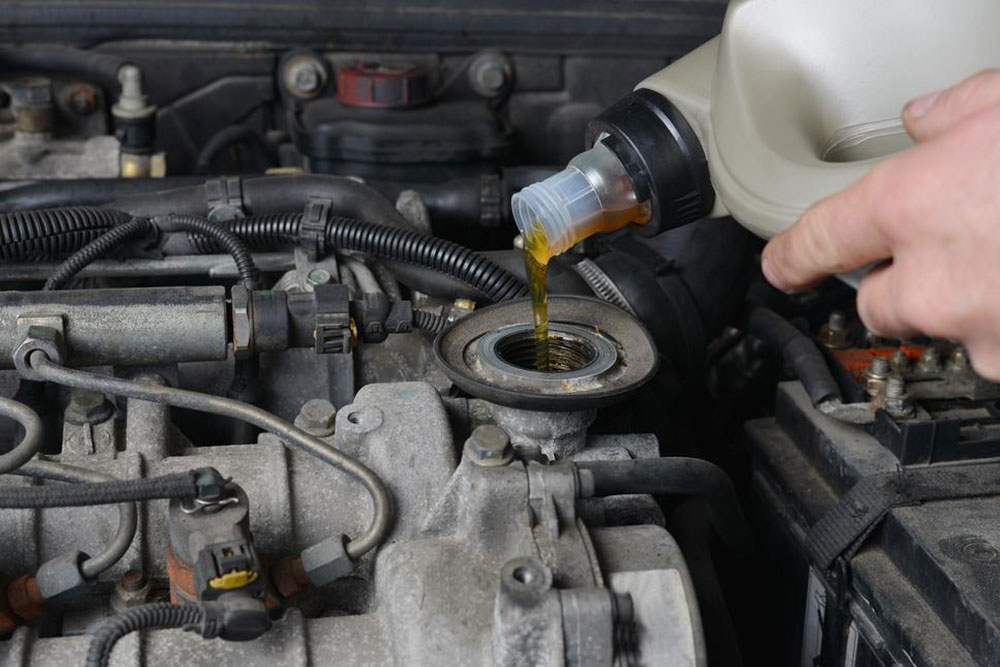Effective Tips to Cut Down Vehicle Oil Change Expenses and Save Money
Discover effective strategies to reduce vehicle oil change costs with practical tips such as understanding the right timing, performing DIY changes, using discounts, and leveraging dealership promotions. Keep your vehicle in top shape while saving money with these expert techniques tailored for budget-conscious car owners.

Effective Tips to Cut Down Vehicle Oil Change Expenses and Save Money
Maintaining your vehicle through regular oil changes is crucial for ensuring optimal engine performance, extending the lifespan of critical components, and preventing costly repairs in the future. Yet, the expense associated with oil changes can add up over time, especially if you’re not strategic about when and how you perform this routine maintenance. Fortunately, there are many proven methods to reduce your vehicle maintenance costs without compromising on quality or safety. This article explores comprehensive strategies for vehicle owners to lower oil change expenses effectively, including understanding when your vehicle actually needs an oil change, considering do-it-yourself (DIY) options, availing discount coupons, and leveraging dealership promotions. Implementing these tips helps keep your car running smoothly while keeping your budget intact.
Knowing When Your Vehicle Truly Requires an Oil Change: One of the most common mistakes vehicle owners make is changing their oil prematurely or delaying it unnecessarily. The recommended interval for oil changes varies depending on the vehicle’s make, model, age, and driving conditions. Historically, it was advised to change engine oil every 3,000 miles. However, advancements in automotive technology and the development of synthetic oils have extended this interval in many modern vehicles. To determine the appropriate timing for your car, consult the owner’s manual or service guide, which provides specific recommendations based on your car’s specifications. Typically, newer models can go between 5,000 to 7,500 miles before requiring an oil change. Some premium synthetic oils even enable intervals beyond 10,000 miles. Overly frequent oil changes not only waste money but also contribute to unnecessary environmental waste. On the other hand, delaying oil changes can lead to engine wear and damage, resulting in costly repairs. Therefore, understanding the correct mileage for your vehicle and adhering to it is fundamental to balancing maintenance costs with engine health. Regularly monitoring the oil level and inspecting the quality of the oil can also help detect potential issues early, such as contamination or breakdown, which might necessitate an earlier change.
Perform DIY Oil Changes for Maximum Savings: If you possess basic mechanical skills and have the necessary tools, performing an oil change yourself can be a game-changer in reducing maintenance costs. This practice allows you to avoid labor charges that often comprise a significant part of service bills. To successfully do an oil change at home, ensure you have the right type and amount of oil suitable for your vehicle, a high-quality oil filter, a drain pan to catch used oil, a socket wrench, funnel, gloves to protect your hands, and a jack stand or ramps to safely lift the vehicle. With some guidance, there are numerous online tutorials and videos that can walk you through each step of the process. Properly disposing of used oil and filters is also essential to comply with environmental regulations. DIY oil changes are not only cost-effective but can also provide a sense of satisfaction and a better understanding of your vehicle’s health.
Maximize Savings with Discount Coupons and Promotions: Many automotive brands, service centers, and parts retailers offer special discounts, coupons, and promotional deals that can dramatically reduce the cost of oil changes. Signing up for email alerts or loyalty programs from trusted providers like Jiffy Lube, Valvoline, or local auto parts stores can keep you informed about upcoming sales and exclusive offers. Using coupons or discount codes during promotional periods can cut down costs by 20-50%. Additionally, some stores bundle services — for example, combining an oil change with a tire rotation or basic inspection — offering more value for your money. It is also worthwhile to explore online coupon websites or mobile apps dedicated to automotive discounts to ensure you get the best deals available. Combining these promotions with your scheduled maintenance can significantly reduce your overall vehicle upkeep expenses.
Take Advantage of Dealership Promotions and Incentives: Dealerships often run special campaigns for new vehicle buyers and existing customers. These programs include discounts, promotional offers, or free service credits that can be applied toward oil changes and other routine maintenance. For instance, some dealerships offer free or discounted oil changes with the purchase of a new vehicle or during seasonal promotions. Moreover, participating in manufacturer-sponsored service campaigns or attending dealership events can earn you coupons, service credits, or loyalty points redeemable for future services. Additionally, taking a test drive might sometimes earn you promotional coupons that can be used later for basic maintenance like oil changes. Always ask your dealership about ongoing promotions or loyalty programs, as these can provide substantial savings, especially if you couple them with scheduled maintenance intervals. Leveraging these strategic offers can keep your vehicle in top condition while significantly reducing costs.
This comprehensive guide empowers vehicle owners with practical and effective ways to cut down on oil change expenses, ensuring their cars stay in excellent condition without stretching their budgets. Whether choosing to perform DIY oil changes, utilizing discounts, or seeking dealership offers, smart planning and informed choices can lead to substantial savings over the vehicle’s lifespan.




